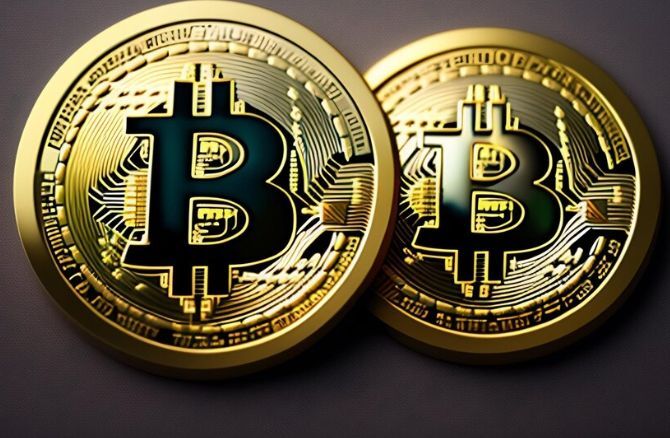
Crypto Trends in Nigeria: What to Know Before Selling in 2024
As we approach 2024, the landscape for selling and cashing out crypto in Nigeria continues to evolve, shaped by technological advancements, regulatory changes, and shifting economic dynamics. Let's delve into the comprehensive overview of the current trends, factors to consider before selling, and the best ways to cash out crypto in Nigeria in 2024.
Key Trends Shaping the Nigerian Crypto Market in 2024
As more Nigerians recognize the benefits of cryptocurrencies, their use for everyday transactions has grown. Digital currencies provide a quicker, more affordable, and more effective option to conventional banking methods for remittances and paying for goods and services.
By offering decentralized financial services like lending, borrowing, and trading without middlemen, these platforms are completely changing the financial landscape. Nigerians are increasingly leveraging DeFi platforms to access financial services, earn interest on their crypto holdings, and participate in new investment opportunities.
Decentralized exchanges (DEXs) are gaining traction. Unlike centralized exchanges, DEXs operate without a central authority, providing users with greater control over their assets. In 2024, we anticipate significant growth in DEX usage due to their security, privacy, and reduced risk of hacks. Popular DEX platforms include Uniswap, SushiSwap, and PancakeSwap.
Nigeria's tech-savvy population has led to the emergence of numerous crypto startups and innovation hubs. These startups are driving innovation in the space, offering new solutions for trading, payments, and financial inclusion. The growth of these startups is fostering a vibrant crypto ecosystem that supports both new and experienced users.
Bitcoin ATMs are evolving. In 2024, we can expect an increased number of ATMs with advanced functionalities. These new-generation ATMs will offer features like multi-currency support, lower fees, and enhanced security measures. Additionally, some ATMs may integrate with other financial services, providing a one-stop solution for crypto and fiat transactions.
Global crypto trends, such as the increasing interest in non-fungible tokens (NFTs) and the metaverse, are influencing the Nigerian market. As the global crypto space evolves, Nigerian investors and developers are quick to adapt and incorporate these trends, creating new opportunities and challenges for the local market.
Factors to Consider Before Selling Crypto in Nigeria
Cryptocurrency markets are known for their volatility. Prices can fluctuate significantly within short periods, influenced by global market trends, regulatory news, and technological developments. It's important to stay informed about market conditions and have a strategy in place to mitigate potential losses.
Regulatory uncertainty remains a significant factor in the Nigerian crypto market. While the government's stance has softened with the introduction of the Naira, future regulations could impact the ease of selling and cashing out crypto. Ensuring compliance and remaining informed about regulatory changes are crucial for seamless transactions.
Choosing the right platform to sell crypto is critical. The platform's reputation, security protocols, costs, and user experience are all important considerations. In Nigeria, popular marketplaces for cryptocurrency sales include Quidax, BuyCoins, Luno, and Binance. These platforms offer various features, including competitive rates and robust security protocols.
Fraud and scams are not uncommon in the cryptocurrency industry. Ensuring the security of your assets should be a top priority. Use platforms with strong security measures, enable two-factor authentication, and be wary of phishing attempts and fraudulent schemes. It's also advisable to keep your private keys secure and use hardware wallets for long-term storage.
For those preferring a personal touch, selling Bitcoin directly to friends or family is an option. Additionally, social media platforms and online forums provide avenues to find potential buyers. While this method can save on fees, it requires trust between the parties involved.
How to Cash Out Crypto in Nigeria
Start by selecting a trustworthy exchange or platform to sell your crypto. Think about elements including transaction fees, supported cryptocurrencies, security features, and user reviews. Platforms like Binance, Luno, and Quidax are popular choices for Nigerians.
Most exchanges require identity verification to comply with regulations and ensure security. Prepare to provide identification documents and proof of address. Set up your wallet and link your bank account for withdrawals after your account has been verified.
Transfer your crypto from your wallet to the exchange. make sure you use the correct wallet address to avoid losing your funds. Transactions typically take a few minutes to several hours, depending on network congestion and the cryptocurrency being transferred.
Once your crypto is on the exchange, you can sell it for Naira or other supported currencies. Check the current market rates and place your sell order. Most platforms offer market orders (sell at the current market price) and limit orders (set a specific price at which to sell).
After selling your crypto, withdraw the funds to your linked bank account. The duration of withdrawals varies based on the platform and your bank, but they usually take a few minutes to a few days. Be mindful of withdrawal fees, which can vary between platforms.
Conclusion
Selling and cashing out crypto in Nigeria requires a thorough understanding of the market trends, regulatory environment, and best practices for secure transactions. By staying informed and using reliable platforms, you can navigate the complexities of the crypto market and make informed decisions. As the crypto landscape continues to evolve, staying updated with the latest trends and developments will be crucial for success.
Explore more resources on Qxchange for seamless crypto trading and stay updated with the latest crypto trends and news in Nigeria. Whether you're a seasoned trader or new to the crypto space, staying informed and using reliable platforms will help you make the most of your crypto investments.
